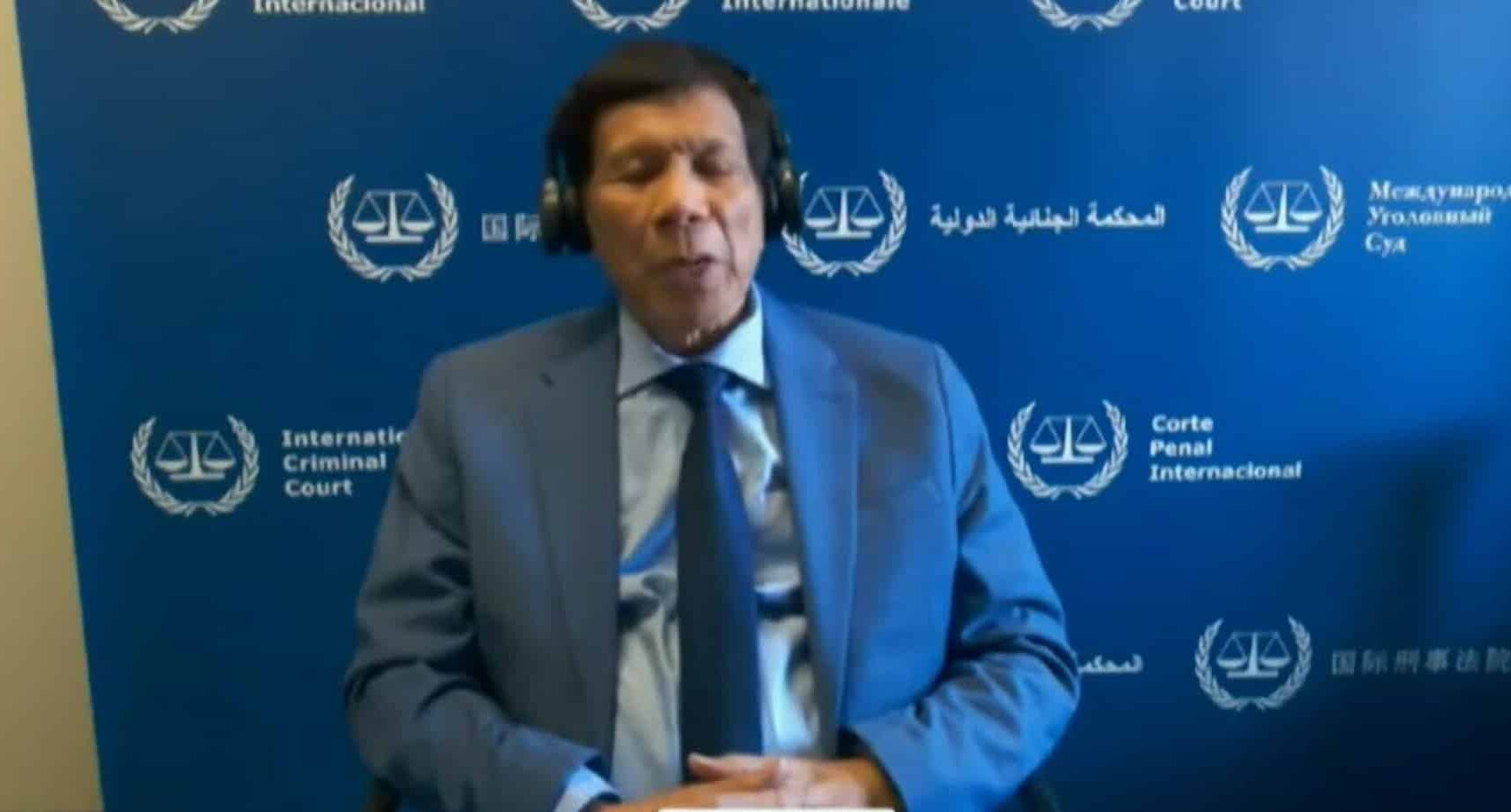
Rodrigo Duterte —SCREEN GRAB FROM ICC
MANILA, Philippines — Preliminary findings by the Senate panel on foreign relations regarding the arrest of former President Rodrigo Duterte reveal “glaring lapses” by the Philippine government, Sen. Imee Marcos said on Thursday.
Marcos, who heads the committee, presented the panel’s findings during a press conference in the Senate.
During her presentation, the presidential sister insisted that the government had no obligation to arrest the former president and surrender him to an international court.
READ: Escudero: Duterte’s ICC arrest doesn’t compromise PH sovereignty
She also claimed that the administration, led by her younger brother President Ferdinand “Bongbong” Marcos Jr., categorically decided to assist the International Criminal Court (ICC) in the arrest of the former president.
Below are the three preliminary findings by the Senate panel on foreign relations:
1. The Philippines had no legal obligation to arrest former president Rodrigo Duterte and turn him to the ICC.
According to Marcos, what was received was only a diffusion notice, not verified or approved by the International Criminal Police Organization (Interpol) Secretariat.
“No verification by the Interpol whether the request complied with Article III of their constitution, forbidding the Interpol from undertaking any intervention or activities of a political, military, religious or racial character,” she pointed out.
“Under the terms of diffusion notice, there was no obligation on the part of the Philippine government to turn over former president Duterte to the ICC,” she emphasized.
READ: Duterte’s ICC arrest: Separating fact from lies
In laying out her points, Marcos pointed out that there is no indication that the ICC even requested for the surrender of Duterte after his provisional arrest.
“There is likewise no indication that the ICC requested extradition after the arrest of [former president Duterte]. Finally, the argument of the Secretary of Justice Crispin Remulla—that while the Philippines is not under the jurisdiction of the ICC, the individuals themselves are still under the ICC jurisdiction because International Humanitarian Law (“IHL”) forms part of customary law—is deeply flawed,” she emphasized.
2. The Philippine government decided to assist the ICC to arrest the former president.
Marcos said it is evident that the administration already started preparations prior to March 11.
“Even before the ICC Prosecutor applied for a warrant of arrest, there were already statements by key executive officials that the Administration will cooperate if the ICC courses through Interpol its request to arrest Duterte,” she said.
The lady senator then proceeded to lash out on the claim of Interior and Local Government Secretary Juanito Victor Remulla, Jr. that the supposed “group effort” surrounding Duterte’s arrest was only to tackle rumors surrounding it.
“This attempt to cover up what was already aired in the media indicates all the more that a comprehensive plan to arrest Duterte was already in place even before March 11,” she said.
3. There were glaring violations of the rights of the former president.
Marcos said the constitutional safeguards guaranteeing liberty and due process of law were not observed — no warrant was issued by the Philippine court [and] the arrest did not fall within the exceptions of a warrantless arrest.
The former president was arrested on March 11, 2025 at the Ninoy Aquino International Airport upon his return from HongKong.
This was based on a warrant issued by the International Criminal Court, charging him with crimes against humanity related to his anti-drug campaign during his presidency.
Shortly after his arrest, Duterte was transported to The Hague, Netherlands to face the charges before the international court.


